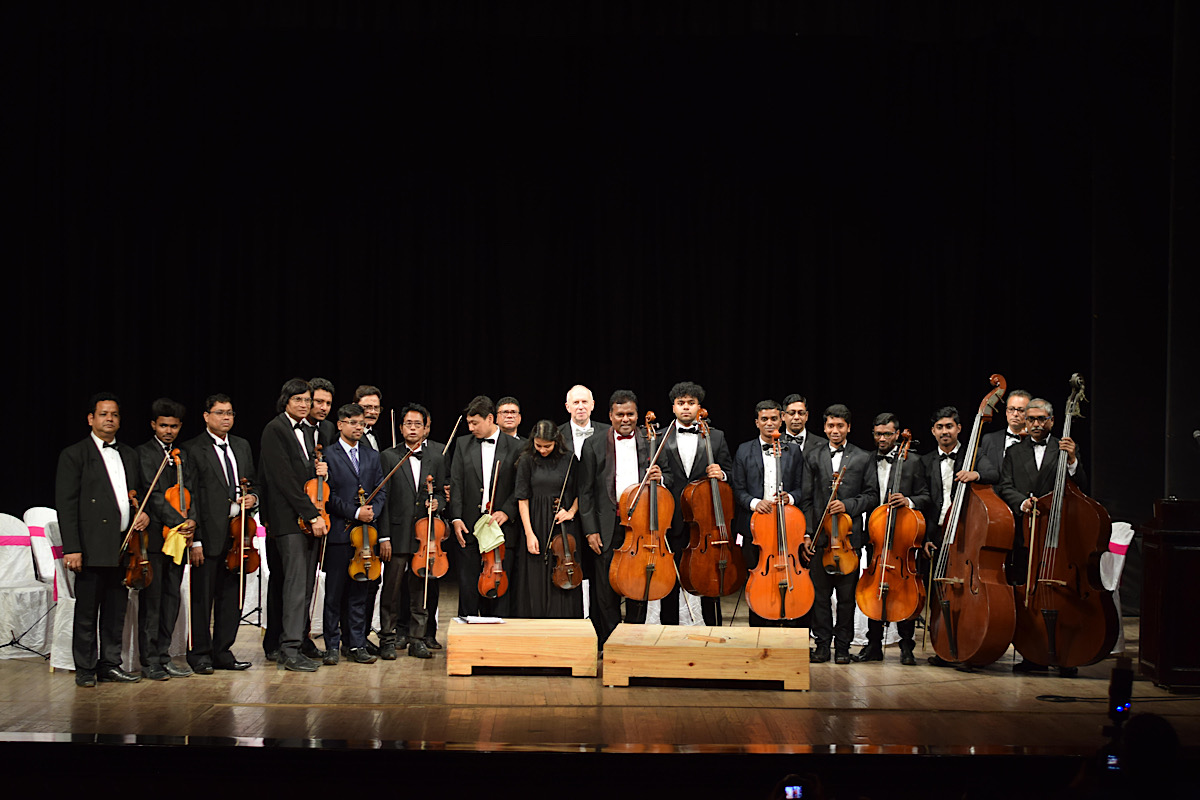The British Raj had once introduced occidental music, namely western classical music, to this city when they reigned supreme in an era long gone into the past. But its endurable influence continues, come what may, and still continues ever since post-Independence. Indian exponents of the genre have taken it upon themselves to perpetuate the rich traditional values and make it popular among a coterie of Indian music lovers with discerning musical tastes.
Western classical concerts in this new millennium are few and far between; therefore, it was de rigueur for the Mathieson Music Trust to present the Bengal Philharmonic Orchestra to reach out to a sizable audience delighted in tuning in to this kind of musical discipline in Kolkata.
Advertisement
This year, GD Birla Sabhaghar was chosen for this exposure as the venue for staging their concert on Saturday, 20 January. Before reviewing, it needs reminding of two very important members of the Bengal Philharmonic Orchestra: solo cellist Anup Kumar Biswas and British conductor and composer Andrew Campling, a very senior member of the team.
The Kolkata-born solo cellist Anup Kumar Biswas has chosen to make his home in London, the musical capital, since 1974. He has given wide-ranging concerts throughout Great Britain, including at the Royal Albert Hall, St James’ Palace, Lambeth Palace, Queen Elizabeth Hall, Westminster Abbey, etc. He is equally at home, showcasing his skills in both Western and Indian music. It also requires mentioning that the British conductor and composer Andrew Campling is a member of the Iver Academy of Composers. His compositions have been featured on international platforms and have been performed at such prestigious theatre halls as the Royal Albert Hall St Paul’s Cathedral.
The curtains of the musical concert were unveiled with Johann Sebastian Bach’s famous Brandenburg Concerto No. 3 in G major with three movements: Allegro, Adagio, and Allegro. Being Europe’s most talented composer during his lifetime, Bach dedicated six concertos with several instruments to Margrave Christian Ludwig of Brandenburg. The Bengal Philharmonic Orchestra, under the baton of Conductor Andrew Campling, managed to establish a spiritual base for Bach’s compositions. Though well coordinated, members of the orchestra combining violin, violas, and cellos could have done a little more subtle fine tuning.
This was followed by Antonio Vivaldi’s Concerto in E minor, RV40, op. 17/5, in four movements: Largo, Allegro, Largo, Allegro. Members of the orchestra managed to bring better unison and counterpoint with the base notes of the cello’s interaction with the more sensitive renditions of the violin and violas. After the interval, listeners were treated to a composition of George Frideric Handel’s Water Music with two movements: Air and Bourree. Handel’s Water Music was composed in response to King George I’s request for a concert based on the idea of the Thames River in London.
The evening’s performance showcased two contrasting movements from the suite. The renditions fine-tune the vital, subtle essence of the Baroque era, which has an enduring quality in Western classical music. The audience then geared themselves to listening to Andrew Campling’s Eternity’s Sunrise for a string orchestra and solo cello with Anup Kumar Biswas at the helm. This suite was first performed in 1999 and has strong associations with the city of London. Both the conductor and soloist acquitted themselves well in a show of early morning spring.
The curtains of the evening’s programme were brought down, and Edward Grieg’s Holberg Suite op. 40, coming as part of a tribute to the national commemoration of the great Danish-Norwegian writer Ludwig Holmberg, was really superb. It was a scintillating evening of entertainment, and one looks forward to more such delightful concerts.
The writer is an independent contributor











